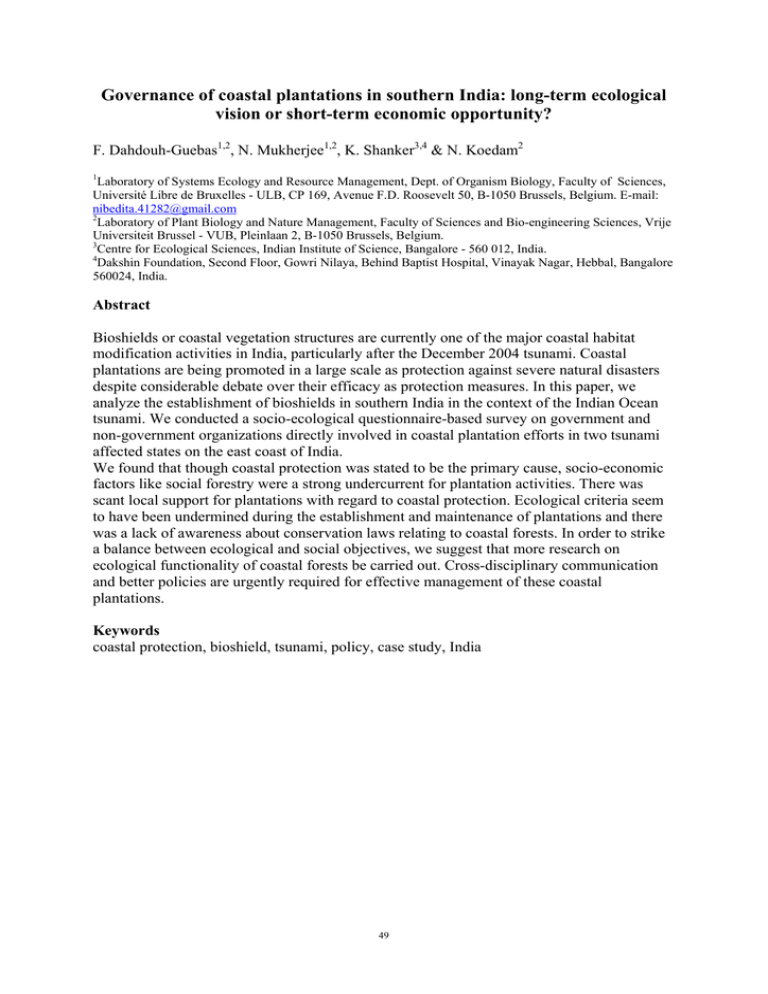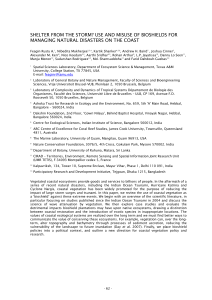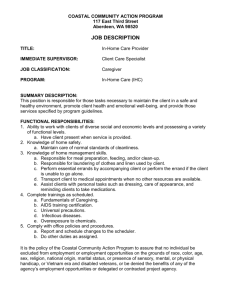Governance of coastal plantations in southern India: long-term ecological
advertisement

Governance of coastal plantations in southern India: long-term ecological vision or short-term economic opportunity? F. Dahdouh-Guebas1,2, N. Mukherjee1,2, K. Shanker3,4 & N. Koedam2 1 Laboratory of Systems Ecology and Resource Management, Dept. of Organism Biology, Faculty of Sciences, Université Libre de Bruxelles - ULB, CP 169, Avenue F.D. Roosevelt 50, B-1050 Brussels, Belgium. E-mail: nibedita.41282@gmail.com 2 Laboratory of Plant Biology and Nature Management, Faculty of Sciences and Bio-engineering Sciences, Vrije Universiteit Brussel - VUB, Pleinlaan 2, B-1050 Brussels, Belgium. 3 Centre for Ecological Sciences, Indian Institute of Science, Bangalore - 560 012, India. 4 Dakshin Foundation, Second Floor, Gowri Nilaya, Behind Baptist Hospital, Vinayak Nagar, Hebbal, Bangalore 560024, India. Abstract Bioshields or coastal vegetation structures are currently one of the major coastal habitat modification activities in India, particularly after the December 2004 tsunami. Coastal plantations are being promoted in a large scale as protection against severe natural disasters despite considerable debate over their efficacy as protection measures. In this paper, we analyze the establishment of bioshields in southern India in the context of the Indian Ocean tsunami. We conducted a socio-ecological questionnaire-based survey on government and non-government organizations directly involved in coastal plantation efforts in two tsunami affected states on the east coast of India. We found that though coastal protection was stated to be the primary cause, socio-economic factors like social forestry were a strong undercurrent for plantation activities. There was scant local support for plantations with regard to coastal protection. Ecological criteria seem to have been undermined during the establishment and maintenance of plantations and there was a lack of awareness about conservation laws relating to coastal forests. In order to strike a balance between ecological and social objectives, we suggest that more research on ecological functionality of coastal forests be carried out. Cross-disciplinary communication and better policies are urgently required for effective management of these coastal plantations. Keywords coastal protection, bioshield, tsunami, policy, case study, India 49







